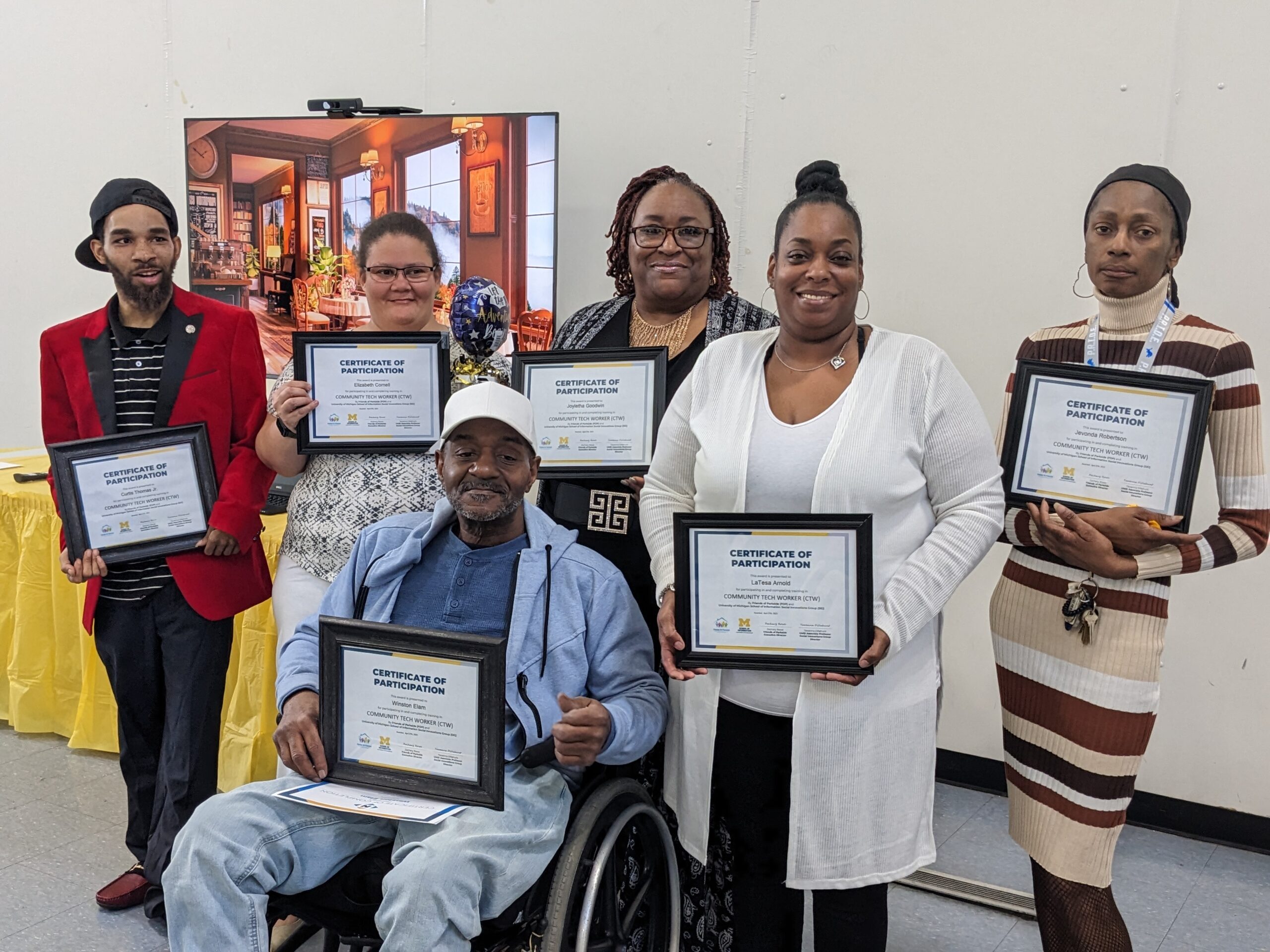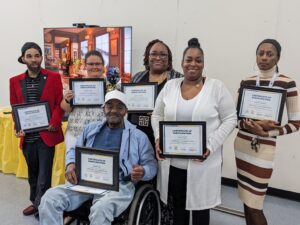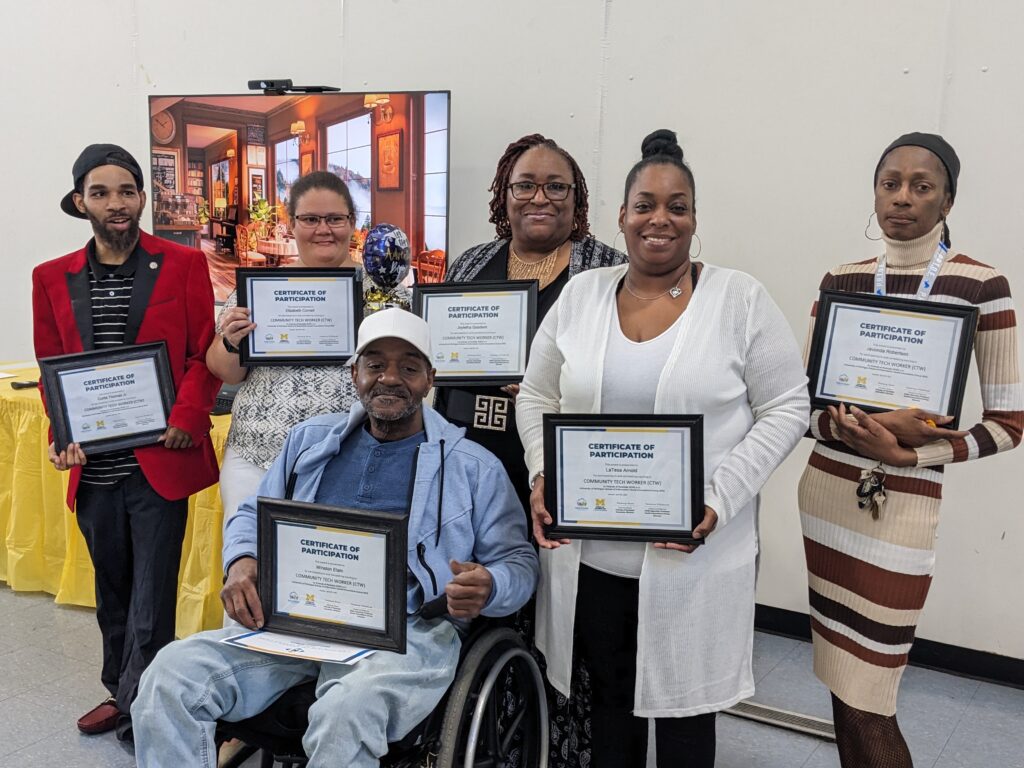Source: Special to Michigan News

Friends of Parkside’s first cohort of community tech workers has graduated from the program. The tech workers are Parkside residents who are trained to provide basic tech support for their neighborhoods. (Photos courtesy of Friends of Parkside)

Friends of Parkside’s first cohort of community tech workers has graduated from the program. The tech workers are Parkside residents who are trained to provide basic tech support for their neighborhoods. (Photos courtesy of Friends of Parkside)
The Villages at Parkside is home to about 160 households on Detroit’s east side. The city’s oldest federally-funded public housing complex, Parkside opened in the 1930s and today consists of two villages. In 1991, a group of residents formed Friends of Parkside, a nonprofit organization that aims to promote solidarity among Parkside residents, help build the self-esteem of youth, offer education and employment-related resources to the community, and promote the health and well-being of residents. Zachary Rowe, who took on the role of executive director of Friends of Parkside after his mother Catherine Rowe, emphasizes that the organization is “by residents, for residents.”

Zachary Rowe
Can you tell us about a project you worked on with the University of Michigan?
We’re currently working on a community tech worker project with the School of Information, Jewish Family Services, and Michigan Community Health Workers Alliance. That project started from an email I sent to Dr. Tawanna Dillahunt in 2020, asking if she wanted to change the world. One of the things we understood as an organization is that society had switched to this digital, online way of doing business. Parkside is right in the midst of the digital divide, and it impacts families differently. For some, it meant not having reliable internet access. For others, it meant they didn’t have a device. Some folks had the internet and a device, but not training to use it. We had known for years there were some capacity issues, and COVID made that more obvious. Residents couldn’t file for unemployment, couldn’t file for government assistance, couldn’t interact with their doctor.
The community tech worker project is loosely modeled after the community health worker program. So the idea is you provide training to everyday folks who in turn work with their neighbors. We teach residents some basic tech skills, like how to add an attachment to an email, how to fill out an online form, or how to use Zoom. We were fortunate to get a pilot grant from Poverty Solutions to fund that, so we had about seven residents go through the training. After that, we got a National Science Foundation grant to expand this community tech worker model, and we’re in the midst of doing that now. Working with the University of Michigan on this topic has really been insightful for us. In the future, I’d like Parkside to be a connected community where everyone has what they need in their home to be connected to one another and to the larger society.
What impact from the community tech worker program have you seen so far?
The community tech workers we hired didn’t view themselves as tech workers at the start and didn’t feel comfortable with their skill level. So for the community tech workers who went through the training, they realized they could make a difference in their own lives and other people’s lives. They felt more confident. The seniors they worked with appreciated that someone even cared. Before the pandemic, they never gave much thought to technology because they thought it was for young folks and they were able to ignore it. When the pandemic hit, it made them realize they needed to think about using technology. The impact was to demystify this whole computer thing. People feel like they can do this.
What have you found most valuable about your partnerships with U-M?
The responsiveness of the researchers was valuable. Not only did I reach out to the School of Information during the pandemic, I also reached out to Poverty Solutions for assistance with case management and they provided support. I reached out to the Medical School as a resource for residents with questions about COVID. In each case, there was a response, and with that response came hope.
What advice would you give to other organizations interested in partnering with U-M?
Don’t be afraid to approach the university about whatever challenges you’re having. Sometimes if you’re a community organization thinking about the mighty University of Michigan, you’re kind of afraid to approach U-M if you don’t know anybody. Find the directory for whatever school you want to work with, and start sending emails. Let them know you’re interested in working with them. Or you can go through the Detroit Urban Research Center or the Michigan Institute for Clinical and Health Research. They can help connect researchers with community groups.


